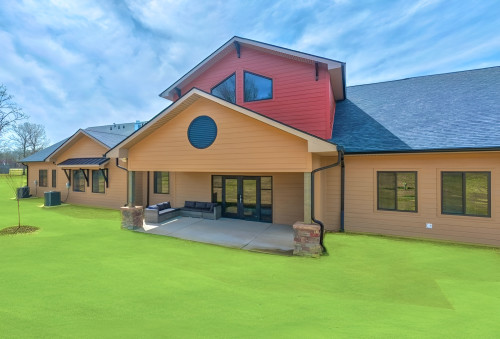
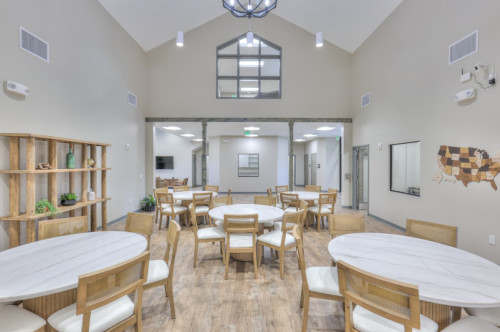
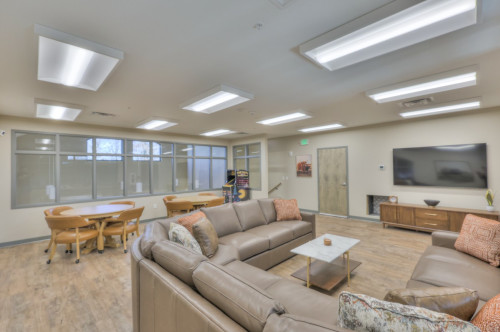
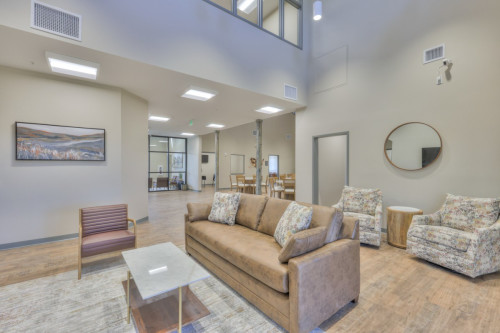
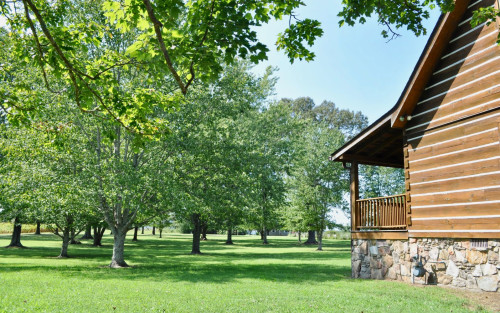




S2L Recovery: Men's Drug and Alcohol Detox & Residential Rehab
Verified Center
This provider's information has been quality-checked by Recovery.com's Research Team for accuracy and completeness, including center verification through appropriate third-party organizations.
Treatment Focus
This center primarily treats substance use disorders, helping you stabilize, create relapse-prevention plans, and connect to compassionate support.
Primary Level of Care
Offering intensive care with 24/7 monitoring, residential treatment is typically 30 days and can cover multiple levels of care. Length can range from 14 to 90 days typically.
Treatment Focus
This center primarily treats substance use disorders, helping you stabilize, create relapse-prevention plans, and connect to compassionate support.
Primary Level of Care
Offering intensive care with 24/7 monitoring, residential treatment is typically 30 days and can cover multiple levels of care. Length can range from 14 to 90 days typically.
Provider's Policy
We work with most PPO insurance plans, which can cover 100% of treatment after deductibles. Our insurance experts provide a free, confidential benefit verification so you have a clear picture of what the costs of treatment would be at our facility and how to maximize your insurance benefits.
S2L Recovery: Men's Drug and Alcohol Detox & Residential Rehab
S2L Recovery: Men's Drug and Alcohol Detox & Residential Rehab
About S2L Recovery: Men's Drug and Alcohol Detox & Residential Rehab
Spring 2 Life Recovery is a non-12-Step, faith-based program for men that promotes Biblical principles and encourages faith to sustain recovery from drug addiction. Clients learn to apply 7 Christian virtues to their lives and are provided a strong, supportive environment through which they can achieve a sustained life of sobriety. S2L Recovery offers detox and long-term residential care.
6-Week Faith-Based Residential Program
S2L offers a 6-week residential program (42 days) for initial treatment, in which clients attend group classes to learn the teachings of Christ and apply them to their recovery journey. Medical and clinical staff assess and treat physical and mental needs. A recovery coach is assigned to each participant in the program and will contact family as desired to promote the healing of familial relationships. Clients can enjoy outdoor retreats to a local state park, canoeing, paintball excursions, gym times, and attending church services. Fellowship with other men in the program is also encouraged.
Learning Life Skills and Long-Term Support
In the second phase of S2L’s program, men are encouraged into further recovery, deeper into Biblical principles, personal freedom, and responsibility. In this stage, attendees learn family and work skills such as financial stewardship, cooking, and leadership as husbands and fathers. Once this stage is complete, men can return home or are eligible for further support in phase 3.
Personal Growth in Recovery
Tucked away in central Tennessee about 15 minutes from Short Mountain, men can overcome their addiction free of judgment while growing in their faith, developing resolve, and increasing self-control. The program is a community-based model and provides immediate aftercare support. Regardless of a client’s personal views, the program offers practical growth models for being a good citizen and developing a loving nature toward yourself and others.

Highlights from the Center
Highlights
These highlights are provided by and paid for by the center.
Customized Treatment Plans
Non 12-Step Approach
Men Only
Addiction Recovery
Center Overview
Treatment Focus
This center primarily treats substance use disorders, helping you stabilize, create relapse-prevention plans, and connect to compassionate support.
Joint Commission Accredited
The Joint Commission accreditation is a voluntary, objective process that evaluates and accredits healthcare organizations (like treatment centers) based on performance standards designed to improve quality and safety for patients. To be accredited means the treatment center has been found to meet the Commission's standards for quality and safety in patient care.

S2L Recovery: Men's Drug and Alcohol Detox & Residential Rehab
Insurance Accepted
Cash Pay Rates
Estimated Cash Pay Rate
Center pricing can vary based on program and length of stay. Contact the center for more information. Recovery.com strives for price transparency so you can make an informed decision.




Recovery.com Verified Listing
Recovery.com verified that the name, location, contact information and license to operate for this treatment provider are valid and up-to-date.

Joint Commission Accredited

Licensed by Tennessee
Recovery.com is an independent, third-party mental health resource. Verification does not imply endorsement and does not guarantee the quality of treatment services.
Meet Your Care Team

Pastor Adam Comer
Chief Executive Officer

Pastor Ron Anderson
Executive Vice President
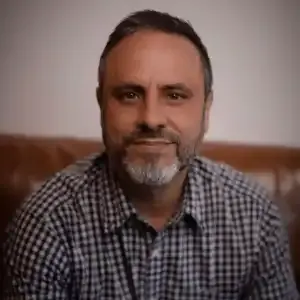
Pastor Carl Ubiñas
Chief Growth Officer
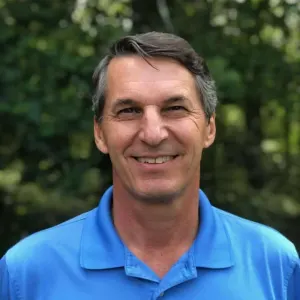
Dr. Andrew Daigle
Medical Director
Your Care Options
Specializations
Christian
Through surrender and commitment to Christ, patients refocus the efforts and source of their recovery with clinical and spiritual care.
Non 12 Step
Non-12-Step philosophies veer from the spiritual focus of the 12-Steps and instead treat the disease of addiction with holistic or secular modalities.
Who We Treat
Veterans
Patients who completed active military duty receive specialized treatment focused on trauma, grief, loss, and finding a new work-life balance.
Treatment Services
Detox
Detox fully and safely removes toxic substances from the body, allowing the next steps in treatment to begin with a clean slate.
Detox (on-site with residential)
This is often the first step of addiction treatment. For many people, it's dangerous to detox without proper medical support.
Residential
In a residential rehab program, patients live onsite, with access to daily treatment and 24-hour care. An average stay is 30-90 days.
Approaches
Spiritual Emphasis
Spirituality connects patients to a higher power and helps strengthen their recovery, hope, and compliance with other treatment modalities.
Christian
Through surrender and commitment to Christ, patients refocus the efforts and source of their recovery with clinical and spiritual care.
Non 12 Step
Non-12-Step philosophies veer from the spiritual focus of the 12-Steps and instead treat the disease of addiction with holistic or secular modalities.
Gender-Specific
Separate treatment for men or women can create strong peer connections and remove barriers related to trauma, shame, and gender-specific nuances.
Therapies
1-on-1 Counseling
Patient and therapist meet 1-on-1 to work through difficult emotions and behavioral challenges in a personal, private setting.
Life Skills
Teaching life skills like cooking, cleaning, clear communication, and even basic math provides a strong foundation for continued recovery.
Motivational Interviewing and Enhancement Therapy (MET)
This approach is based on idea that motivation to change comes from within. Providers use a conversational framework that may help you commit to recovery.
Solution Focused, Goal-Oriented Therapy
A quick goal-oriented therapy that helps patients identify their current and future goals, find out how to achieve them, and empower future problem-solving.
Spiritual Care
Tending to spiritual health helps treatment become more effective, allowing patients to better cope with their emotions and rebuild their spiritual wellbeing.
Substances We Treat
Alcohol
Using alcohol as a coping mechanism, or drinking excessively throughout the week, signals an alcohol use disorder.
Benzodiazepines
Benzodiazepines are prescribed to treat anxiety and sleep issues. They are highly habit forming, and their abuse can cause mood changes and poor judgement.
Cocaine
Cocaine is a stimulant with euphoric effects. Agitation, muscle ticks, psychosis, and heart issues are common symptoms of cocaine abuse.
Drug Addiction
Drug addiction is the excessive and repetitive use of substances, despite harmful consequences to a person's life, health, and relationships.
Heroin
Heroin is a highly addictive and illegal opioid. It can cause insomnia, collapsed veins, heart issues, and additional mental health issues.
Opioids
Opioids produce pain-relief and euphoria, which can lead to addiction. This class of drugs includes prescribed medication and the illegal drug heroin.
Prescription Drugs
It's possible to abuse any drug, even prescribed ones. If you crave a medication, or regularly take it more than directed, you may have an addiction.
Languages
Aftercare
Care Designed for Your Needs
Personal Amenities
Amenities
Special Considerations
Gender-specific groups
Patients in gender-specific groups gain the opportunity to discuss challenges unique to their gender in a comfortable, safe setting conducive to healing.
Religion-Based Track
Patients can join faith-based recovery tracks to approach recovery with others in their faith, healing in a like-minded group with similar goals.
Activities
Off-Site Activities
Off-Site Amenities
Learn More About the Center
The 7 Principles: Addiction Recovery Curriculum
Explore the 7 guiding beliefs that shape their treatment program.
Their Unique Approach
Learn more about how S2L Recovery incorporates non-12-Step and Christian beliefs into their care.
Dual Diagnosis Treatment
Read how S2L Recovery addresses co-occurring mental health concerns.
Recreational Therapy for Addiction Recovery
Discover how combining faith-based practices with therapeutic activities play an important role in recovery.
What people are saying
Treatment
4.9
Accommodations
4.8
Food & Nutrition
4.6
Value
4.8
Pros
- Friendly & Competent Staff (6)
- Treated With Respect (6)
- Excellent & Effective Treatment Programming (5)
- Addressed Trauma (4)
ZW
Treatment in 2024 • (42 days) • Reviewed 01/15/25
Former Client
•Financial Advisor
•Michigan
Matt
Treatment in 2024 • (90 days) • Reviewed 01/09/25
Former Client
•EMT/Marine Corps veteran
Marcus
Treatment in 2023 • (84 days) • Reviewed 01/09/25
Former Client
•Recovery Coach
•McMinnville TN
ASW
Treatment in 2023 • (84 days) • Reviewed 01/09/25
Former Client
Patrick
Treatment in 2021 • (90 days) • Reviewed 01/08/25
Former Client
•Operations Manager
•Alabama





